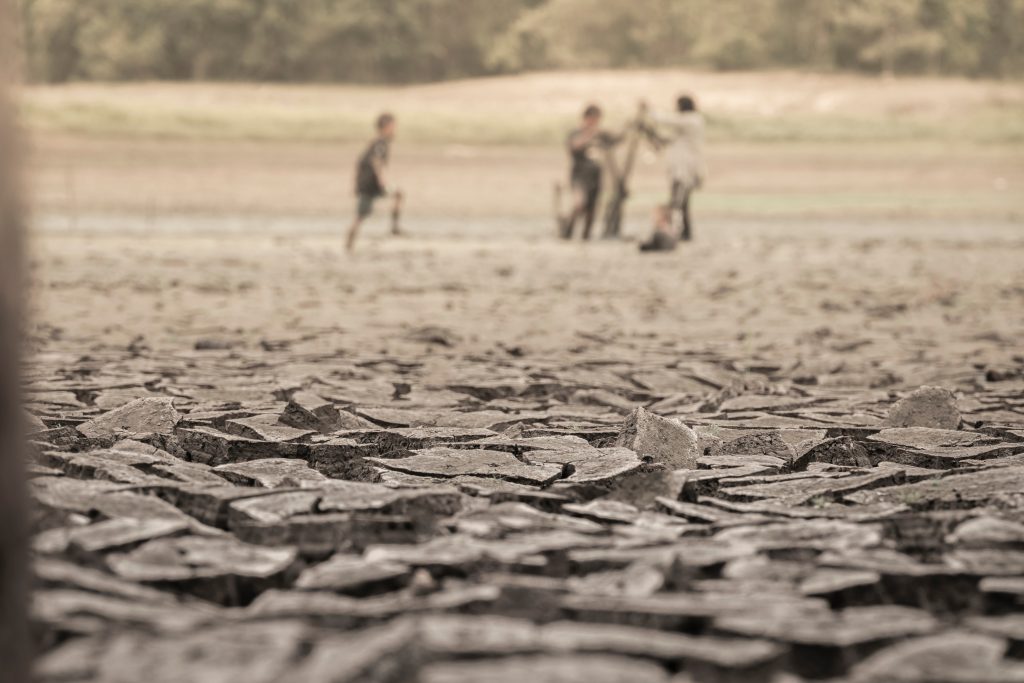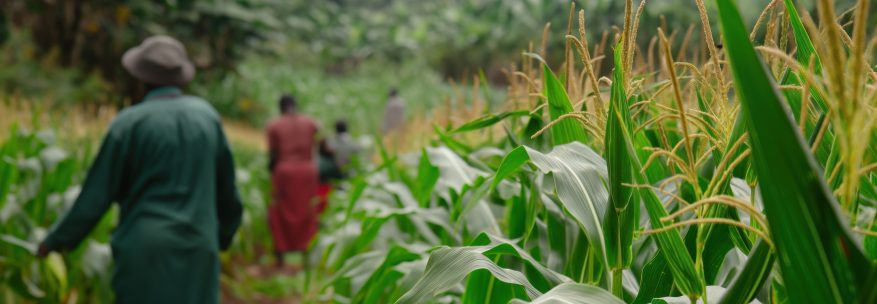As we enter a new year, it’s fair to say we’re entering a period of uncertainty around the world. However, there appears to be one constant: hundreds of millions hungry in a world of plenty. Close to 300 million people in Africa live in extreme hunger today – around one fifth of the population. Africa has large areas of arable land, long periods of sunshine to grow food, and the world’s youngest workforce. But it faces challenges from unreliable rainfall and water availability, increasing temperatures, declining soil fertility, and new pests and diseases.
The World Food Programme said last year the numbers facing food insecurity globally had grown by more than 200 million in recent years.
We are producing more than enough to feed our planet’s eight billion people. But as the population climbs towards 10 billion, we must confront the challenge of increasing food production without causing more harm to the environment or exacerbating the climate crisis, which contributes to food insecurity.
It is more than a decade since the UN concluded in its landmark report Agriculture at a Crossroads, that to provide a sustainable source of food for the world’s growing population, more environmentally friendly and sustainable methods of food production were needed.
It said scientific research needed to be combined with local knowledge and community-based experimentation, and affordable, pragmatic technologies and innovation that were readily adaptable by small-and medium-scale producers to tackle the global hunger crisis.
That recommendation is even more relevant today than it was when it was first published.
Right now, sub-Saharan Africa’s 33 million small-scale farmers are well placed to embrace environmentally friendly and sustainable methods of food production, as many of them use these practices already.
For resource-poor households, low-cost solutions such as precision application of fertilisers, organic compost and fertilisers made from recycled waste; rainwater harvesting; and farming practices that reduce soil disturbance and erosion and recycle soil nutrients, are readily embraced both out of necessity as well as for the impact they can have on production.
Innovations in plant breeding seed technology, together with community-based, farmer-owned seed enterprises are also making a difference, and are allowing farmers in harsh climate conditions to embrace alternative crops that can cope better with the changing climate.

Some of the “new” crops that we promote at Self Help Africa aren’t new at all: they are varieties of old crops – such as millet and sorghum – that ceased to be commonly grown but are now being found to be more nutritious, disease-resistant and tolerant of drought and heat.
Innovations in plant breeding seed technology, together with community-based, farmer-owned seed enterprises are making a difference. Above, a millet farm. Africa’s small-scale farmers can provide an alternate road map for food production as we seek to both feed the world and reduce the environmental impacts of industrial-scale farming.
But right now, these small-scale farming communities are feeling some of the worst effects of global warming.
African farmers, who work with hand tools, use animals for tillage and rely almost exclusively on rainfall to irrigate their crops and water their animals, are particularly vulnerable.
Successive years of drought, record-breaking heat and extreme flooding have made it difficult for those who live off the land, while poor road networks to transport goods to market, limited storage capacity and under-investment in processing and production facilities that are key to moving food crops from field to fork, mean that in Africa today, it’s farmers are among its poorest people.
Ironically, improved logistics chains that enable farmers to access new markets, and cut the cost of food for poor urban consumers, have also increased the spread of pests and diseases.
Fortunately, donors and investors recognise both the challenge and the opportunity that this presents, and institutional funders including the EU are investing significantly in agri-business development. At home, meanwhile, Irish Aid is supporting a broad array of projects that promote an environmentally sustainable approach to future food production and recognise the value and critical importance of small-holder farmers as a key to ending the intractable problem of hunger in Africa.
This item first appeared in The Irish Independent on 29th December, 2024.

